featured
Oregon Senate Passes Bill to Increase Penalties for Landowners Allowing Illegal Cannabis Cultivation
Published
9 hours agoon

The Oregon Senate earlier this month passed a bill that would increase penalties for landowners who knowingly allow illegal cannabis cultivation on their property, KPIC reports. The legislation would end special tax assessments for properties found to unlawfully allow unlicensed cannabis cultivation.
Special tax assessments are levied on property owners in a specific geographic area that fund local infrastructure projects or public improvements that primarily benefit those properties.
State Sen. David Brock Smith (R) told KPIC that the legislation is designed to “disincentive … farmland owners from allowing or accepting payment or leasing land” for unlawful cannabis cultivation.
“Those landowners need to be better stewards of their land and knowing what they’re allowing to be grown on it. It is their responsibility and this [bill] just puts that into the forefront for them to take responsibility of that land that they own.” — Smith to KPIC
Douglas County Commissioner Chris Boice, who helped craft the language of the bill along with the Oregon Farm Bureau, told KPIC that there is a host of issues associated with unlicensed cannabis grows, including the unregulated use of pesticides, herbicides, and fertilizers near waterways. Boise also noted that human trafficking is an issue at illegal cannabis cultivation sites. In a statement, Douglas County’s Human Trafficking Task Force noted that the sites are “high risk for both labor and sex trafficking.”
“In Douglas County, we have identified over 150 victims and survivors of human trafficking. Some exploited through the illicit marijuana industry, but all within our county,” the statement says. “Labor trafficking is fairly common within the industry with grow sites making big promises. Those coming in from other countries are promised good pay, an opportunity to live/work in the US, but the reality is they are often forced to live out in the elements without any facilities and among hazardous conditions.”
The statement adds that the origins of the illicit grow sites have come from “China, Russia, Ukraine, Mexico, Honduras, Laos, and from local entities within the southern Oregon counties.”
The legislation still needs approval from the House before moving to the governor.
Get daily cannabis business news updates. Subscribe
Have an additional perspective to share? Send us a message to let us know, and if your comment is chosen by our editors it could be featured here.
Perspective to add? Suggest a revision or submit commentary for review using the form below.
Ganjapreneur is made possible by our partners:

Author: mscannabiz.com
MScannaBIZ for all you Mississippi Cannabis News and Information.
You may like
-


Terrabis Opening 5th Illinois Dispensary in Mundelein
-
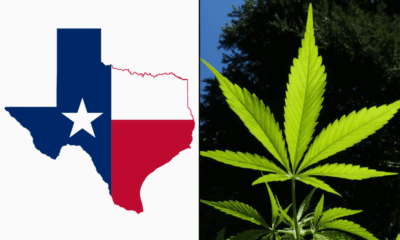

Texas Governor Still Won’t Say If He’ll Sign Hemp Ban Bill, But Thinks There Are ‘Meaningful’ Concerns On Both Sides Of The Debate
-
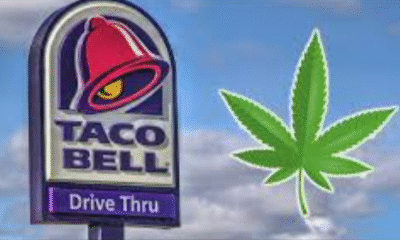

A Cannabis Match Made In Heaven
-


Vireo Growth Provides Corporate Update After Closing All Merger Transactions
-


Most Marijuana Consumers Oppose Trump’s Cannabis Actions So Far, But Rescheduling Or Legalization Could Bolster Support, Poll Shows
-


The Massachusetts Cannabis Trail: How The Fresh Connection Thrives in a Competitive Market
featured
Terrabis Opening 5th Illinois Dispensary in Mundelein
Published
42 minutes agoon
June 17, 2025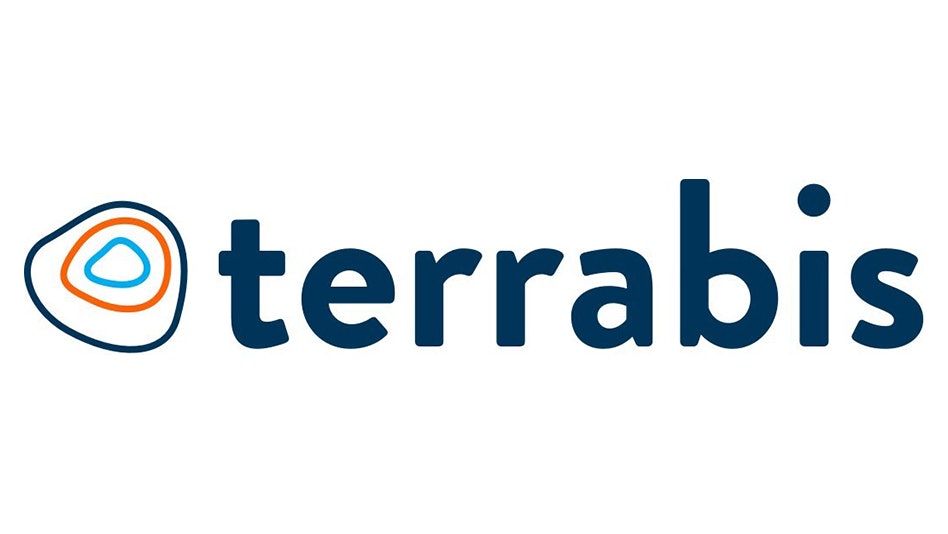
[PRESS RELEASE] – MUNDELEIN, Ill., June 17, 2025 – Terrabis, a leading multistate cannabis operator, announced its newest milestone with the approval to open its fifth Illinois dispensary. The new location in Mundelein will open its doors later this year, marking another significant step in the company’s strategic growth within the state’s thriving cannabis market.
The new store will be at 3210 W. Route 60 on Mundelein’s northwest side. Conveniently located within the bustling Mundelein Crossings shopping center, the site offers easy access for residents and visitors.
The upcoming dispensary in Mundelein will join Terrabis’ existing four dispensaries in Illinois, further solidifying the company’s presence in the Midwest. This milestone follows a period of remarkable growth for Terrabis, including the successful launch of its own Terrabis flower line earlier this year.
Over the past eight months, Terrabis has opened three new locations in Illinois, underlining its commitment to delivering a consistent and high-quality cannabis experience to customers. The Mundelein location will bring the Terrabis network to nine dispensaries across Illinois and Missouri.
“This achievement reflects our dedication to responsible expansion and delivering on our mission to create truly unique cannabis experiences,” Terrabis CEO Dan Ambrosino said. “Mundelein is an exciting addition to our portfolio of Illinois dispensaries, and we look forward to continuing our growth while maintaining our core values of community impact, exploration and wellness.”
Mundelein has long been recognized as playing a pivotal role in shaping Illinois’ cannabis culture. As Terrabis prepares to open its fifth Illinois dispensary in this influential town, the company is excited to contribute to the area’s growing reputation as a hub for cannabis innovation.
Terrabis’ continued Illinois expansion signals the company’s ongoing success and dedication to bolstering local communities by fostering economic development and job creation. The company is committed to driving ingenuity within the cannabis industry and setting a benchmark for operational excellence in dispensary management. By prioritizing community impact and industry leadership, Terrabis is creating lasting value for both its customers and the regions it serves.
Terrabis is a privately held, leading, multistate cannabis operator with a corporate office in Chicago. The company has dispensaries in Illinois and Missouri, with a product manufacturing facility in Kansas City, Mo.

Author: mscannabiz.com
MScannaBIZ for all you Mississippi Cannabis News and Information.
featured
Texas Governor Still Won’t Say If He’ll Sign Hemp Ban Bill, But Thinks There Are ‘Meaningful’ Concerns On Both Sides Of The Debate
Published
2 hours agoon
June 17, 2025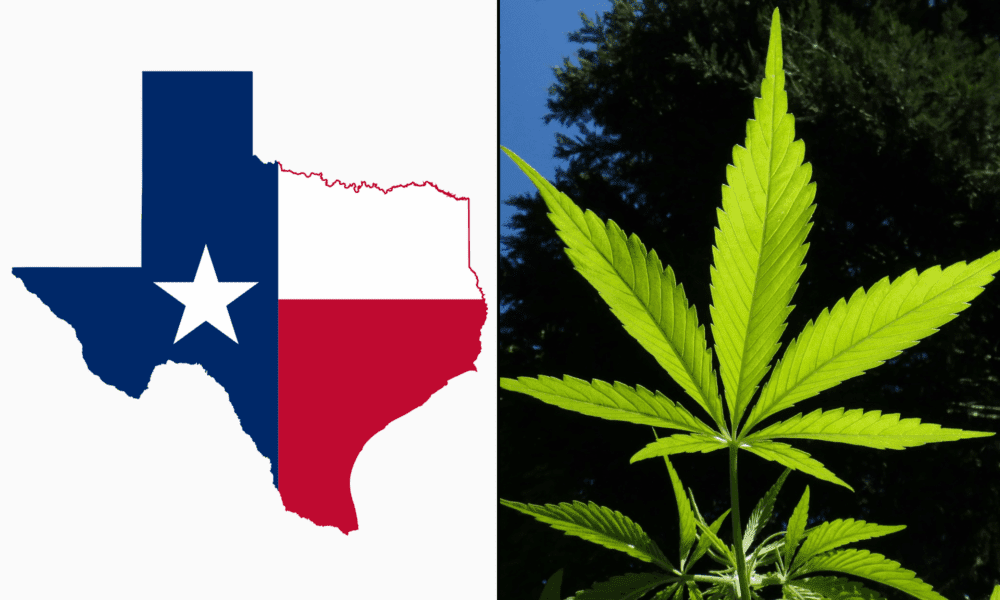
The governor of Texas still hasn’t made a decision on a bill lawmakers recently sent to his desk that would ban consumable hemp products with any traces of THC—but he says there are “meaningful positions and concerns on both sides of the issue.”
As advocates and stakeholders continue to push for a veto of SB 3, which they say would effectively eradicate the hemp market in Texas, Gov. Greg Abbott (R) said on Monday that he has hundreds of bills to review and he “hasn’t gotten to” the cannabis legislation yet.
“I’ll tell you this: Listen, there are meaningful positions and concerns on both sides of the issue, and I’ll look into all of those and evaluate all of those,” he told reporters during a Q & A session following a bill signing ceremony for an unrelated measure.
That largely echoes comments Abbott made earlier this month, when he said SB 3 “is one of literally more than a thousand bills on my desk—all of which need my careful consideration and evaluation.”
“I will give all of those pieces of legislation the consideration and time that they deserve,” the governor said at the time, while sitting beside one of the measure’s most vocal supporters, Lt. Gov. Dan Patrick (R).
But it’s notable that, in his latest comments, he seemed to acknowledge that supporters and opponents of the measure have “meaningful” arguments that he’s taking into account.
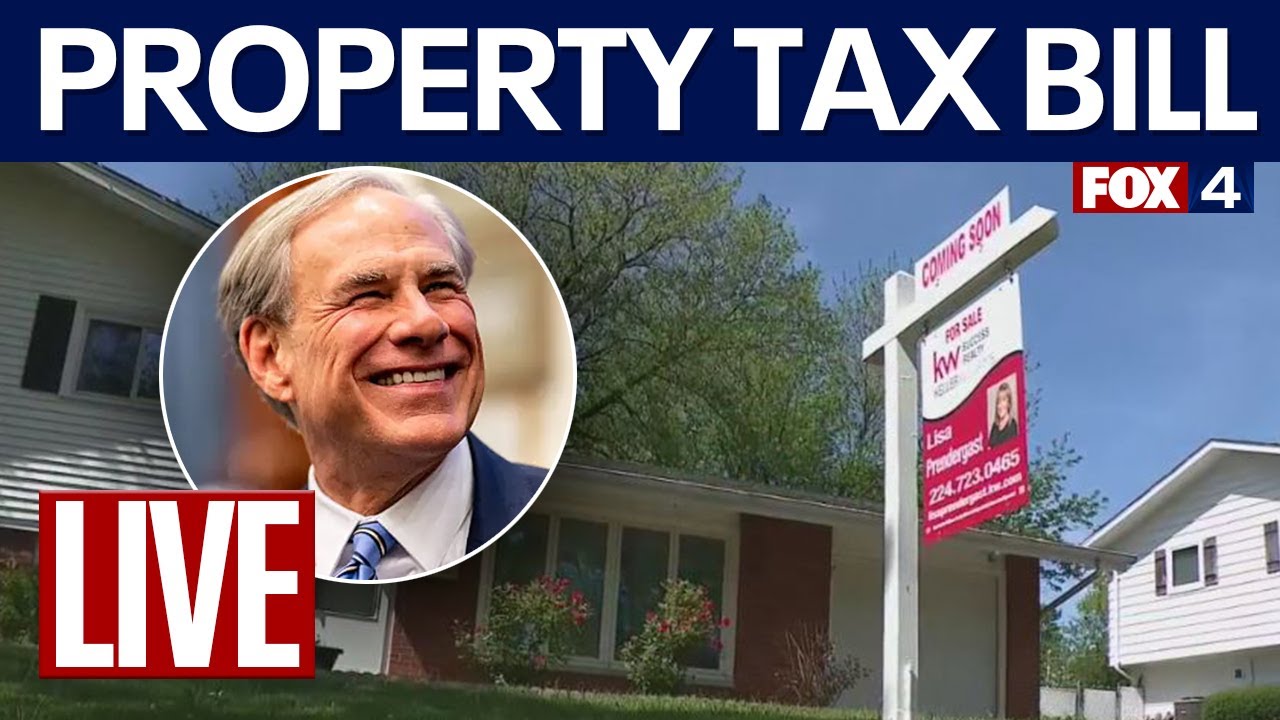
Also this month, hemp advocates and stakeholders delivered more than 100,000 petition signatures asking Abbott to veto the measure. Critics of the bill have said the industry—which employs an estimated 53,000 people—would be decimated if the measure becomes law.
The governor has three options for the proposal: sign it, veto it or allow it to take effect without his signature. The deadline for his decision is this Sunday, June 22.
Last month, a spokesperson for the governor separately declined to disclose Abbott’s plan for the bill, saying only that he “will thoughtfully review any legislation sent to his desk.”
Texas lawmakers legalized the sale of consumable hemp in 2019, following enactment of the 2018 federal Farm Bill, which legalized the plant nationwide. That’s led to an explosion of products—including edibles, drinks, vape products and cured flower—sold by an estimated 8,000 retailers.
Military veterans advocates, including Texas Veterans of Foreign Wars, have also called on the governor to veto the hemp ban, saying it “would cause irreversible harm to communities across the state.”
Farmers have also said the prohibition would devastate a key sector of the state’s agriculture industry.
Meanwhile, a recent poll commissioned the Texas Hemp Business Council (THBC) found that Texas Republican primary voters oppose the proposal to ban hemp products containing THC.
—
Marijuana Moment is tracking hundreds of cannabis, psychedelics and drug policy bills in state legislatures and Congress this year. Patreon supporters pledging at least $25/month get access to our interactive maps, charts and hearing calendar so they don’t miss any developments.![]()
Learn more about our marijuana bill tracker and become a supporter on Patreon to get access.
—
Abbott separately signed a bill into law last week to create a state-backed research consortium to conduct clinical trials on ibogaine as a possible treatment for substance use disorders and other mental health conditions. The ultimate goal of the project is to develop the psychedelic into a prescription drug with federal Food and Drug Administration (FDA) approval, with the state retaining a portion of the profit.
Lawmakers also recently passed a bill to significantly expand the state’s medical marijuana program, sending it to the governor.
The measure would expand the state’s list of medical cannabis qualifying conditions to include chronic pain, traumatic brain injury (TBI), Crohn’s disease and other inflammatory bowel diseases, while also allowing end-of-life patients in palliative or hospice care to use marijuana.
Separately in Texas, a House committee approved a Senate-passed bill last month that would prohibit cities from putting any citizen initiative on local ballots that would decriminalize marijuana or other controlled substances—as several localities have already done despite lawsuits from the state attorney general.
Under the proposal, state law would be amended to say that local entities “may not place an item on a ballot, including a municipal charter or charter amendment, that would provide that the local entity will not fully enforce” state drug laws.
While several courts have previously upheld local cannabis decriminalization laws, an appellate court comprised of three conservative justices appointed by the governor has recently pushed back against two of those rulings, siding with the state in its legal challenge to the marijuana policy in Austin and San Marcos.
Despite the ongoing litigation and advancement of the House and Senate bills, Texas activists have their targets set on yet another city, Kyle, where they hope put an initiative before voters to enact local marijuana reform at the ballot this coming November.
A recent poll found that four in five Texas voters want to see marijuana legalized in some form, and most also want to see regulations around cannabis relaxed.
Image element courtesy of AnonMoos.

Author: mscannabiz.com
MScannaBIZ for all you Mississippi Cannabis News and Information.
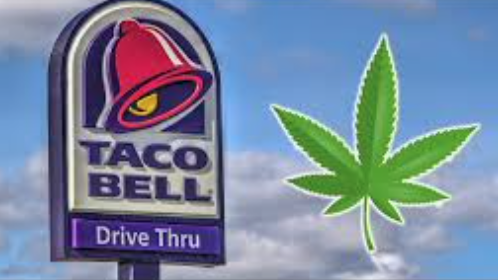
Some cannabis strains can bring on the munchies – so this business pairing in a great combo for consumers!
In a cannabis match made in Heaven, cannabis dispensary giant Planet 13 announced they will share a building with Taco Bell in Edgewater, Florida (Daytona Beach area). It seems like real estate genius to place the two businesses next to each other.
“A true match made in cannabis heaven!” says Jeffrey Trappe, Chief Operating Officer Florida Operations of Planet 13.
RELATED: Mixed Messages From The Feds About Cannabis
Taco Bell and marijuana have a relationship that’s become something of a cultural cliché—and for good reason. According to a 2017 study, Taco Bell was more than twice as popular as any other fast food chain when it came to satisfying the cravings of cannabis consumers. That’s not just brand loyalty—that’s next-level munchies magic.

There’s something uniquely satisfying about Taco Bell’s menu when you’re high. Maybe it’s the savory-soft-crunch of a Doritos Locos Taco, or the customizable chaos of a Crunchwrap Supreme. Add to that the fact that most locations are open late, and you’ve got the perfect storm for a stoner’s snack attack.
Taco Bell’s genius lies in its mashup-style food: bold flavors, textures, and combinations that somehow make perfect sense to a cannabis-influenced palate. High customers crave novelty and indulgence, and Taco Bell delivers both with every cheesy, spicy bite. It’s no wonder the chain leads the pack as the preferred pit stop for those feeling elevated and hungry.
RELATED: Cannabis Is Way Better And Safer Than A Honey Pack
But here’s a twist: not all marijuana makes you hungry. Some strains—particularly sativa-dominant ones—can actually suppress appetite or increase focus and creativity without prompting a fridge raid. The “munchies” typically come from strains higher in THC, which interact with the brain’s endocannabinoid system, increasing your desire for food.
Still, for millions of cannabis users, lighting up and hitting up Taco Bell is practically a ritual. Whether you’re diving into a late-night Quesarito or crafting a $20 custom feast via the app, Taco Bell meets the moment—and the munchies—with open arms and a loaded value menu.
In a post-legalization world where cannabis culture is going mainstream, Taco Bell sits comfortably at the intersection of fast food and faded cravings. For better or worse, when the buzz hits, the Bell often rings loudest and Planet 13 joins in the happy noise.

Author: mscannabiz.com
MScannaBIZ for all you Mississippi Cannabis News and Information.

Terrabis Opening 5th Illinois Dispensary in Mundelein

Texas Governor Still Won’t Say If He’ll Sign Hemp Ban Bill, But Thinks There Are ‘Meaningful’ Concerns On Both Sides Of The Debate

A Cannabis Match Made In Heaven

Vireo Growth Provides Corporate Update After Closing All Merger Transactions

Most Marijuana Consumers Oppose Trump’s Cannabis Actions So Far, But Rescheduling Or Legalization Could Bolster Support, Poll Shows

The Massachusetts Cannabis Trail: How The Fresh Connection Thrives in a Competitive Market

Interview with Anna Schwabe, PhD

Will Supreme Court take up cannabis companies’ challenge to federal prohibition? (Newsletter: June 17, 2025)

Drinks containing THC sold at gas stations. Is that legal?

Report: Jeeter is Top Pre-Roll Brand in the U.S.

Oregon Senate Passes Bill to Increase Penalties for Landowners Allowing Illegal Cannabis Cultivation

Letter to Trump Calls for Ending Federal Cannabis Arrests to Save Government Money

GOP Senators File Bill To Ramp Up Criminalization Of ‘Candy-Flavored’ Marijuana Edibles

Wisconsin Will Legalize Marijuana If Democrats Control Legislature, Governor Says, So People Can Stop Buying It Next Door In Illinois

D.C. Hemp Company Sues Feds Over ‘Unworkable Standard’ Created By Marijuana Budget Rider

Could Watertown reverse course on cannabis shops?

Colorado Healing Center Facilitates First Psilocybin Session Under Voter-Approved Psychedelics Legalization Law

5 Ways Microdosing Cannabis Can Boost Work Performance

Shop LGBTQIA+ brands and dispensaries this Pride Month

Curaleaf Appoints New President, Bolsters Marketing Leadership Team

Missouri Cannabis Stakeholders Prepare 2026 Ballot Initiative To Create ‘Unified’ Marijuana And Hemp Regulations

California Public Health Department Aims to Make Hemp THC Ban Permanent

Texas Gov. Signs Bill Containing $100M for Psychedelic Research

Snoop Dogg Expands His Cannabis Brand Again, With New THCA Hemp Product Sales Website

Alert: Department of Cannabis Control updates data dashboards with full data for 2023

Connecticut Appoints The US’s First Cannabis Ombudsperson – Yes there is a pun in there and I’m Sure Erin Kirk Is Going To Hear It More Than Once!

5 best CBD creams of 2024 by Leafly

Free delta-9 gummies from Bay Smokes

EU initiative begins bid to open access to psychedelic therapies
New Study Analyzes the Effects of THCV, CBD on Weight Loss

Mississippi city official pleads guilty to selling fake CBD products

May 2024 Leafly HighLight: Pink Runtz strain

Curaleaf Start Process Of Getting Their Claws Into The UK’s National Health System – With Former MP (Resigned Today 30/5/24) As The Front Man

Horn Lake denies cannabis dispensary request to allow sale of drug paraphernalia and Sunday sales | News

5 best autoflower seed banks of 2024 by Leafly

Discover New York’s dankest cannabis brands [September 2024]

Press Release: CANNRA Calls for Farm Bill to Clarify Existing State Authority to Regulate Hemp Products

Local medical cannabis dispensary reacts to MSDH pulling Rapid Analytics License – WLBT

Nevada CCB to Accept Applications for Cannabis Establishments in White Pine County – “Only one cultivation and one production license will be awarded in White Pine County”

The Daily Hit: October 2, 2024

6 best CBD gummies of 2024 by Leafly

5 best THC drinks of 2024 by Leafly

5 best delta-9 THC gummies of 2024 by Leafly

Weekly Update: Monday, May 13, 2024 including, New Guide for Renewals & May Board meeting application deadline

People In This State Googled ‘Medical Marijuana’ The Most, Study Shows

PRESS RELEASE : Justice Department Submits Proposed Regulation to Reschedule Marijuana

Press Release: May 9, STIIIZY and Healing Urban Barrios hosted an Expungement Clinic & Second Chance Resource Fair

Thailand: Pro-cannabis advocates rally ahead of the government’s plan to recriminalize the plant
Trending
-

 California Cannabis Updates1 year ago
California Cannabis Updates1 year agoAlert: Department of Cannabis Control updates data dashboards with full data for 2023
-

 best list11 months ago
best list11 months ago5 best CBD creams of 2024 by Leafly
-

 Breaking News1 year ago
Breaking News1 year agoConnecticut Appoints The US’s First Cannabis Ombudsperson – Yes there is a pun in there and I’m Sure Erin Kirk Is Going To Hear It More Than Once!
-

 Bay Smokes12 months ago
Bay Smokes12 months agoFree delta-9 gummies from Bay Smokes
-

 Business9 months ago
Business9 months agoEU initiative begins bid to open access to psychedelic therapies
-

 cbd1 year ago
cbd1 year agoNew Study Analyzes the Effects of THCV, CBD on Weight Loss
-

 Mississippi Cannabis News1 year ago
Mississippi Cannabis News1 year agoMississippi city official pleads guilty to selling fake CBD products
-

 California1 year ago
California1 year agoMay 2024 Leafly HighLight: Pink Runtz strain



